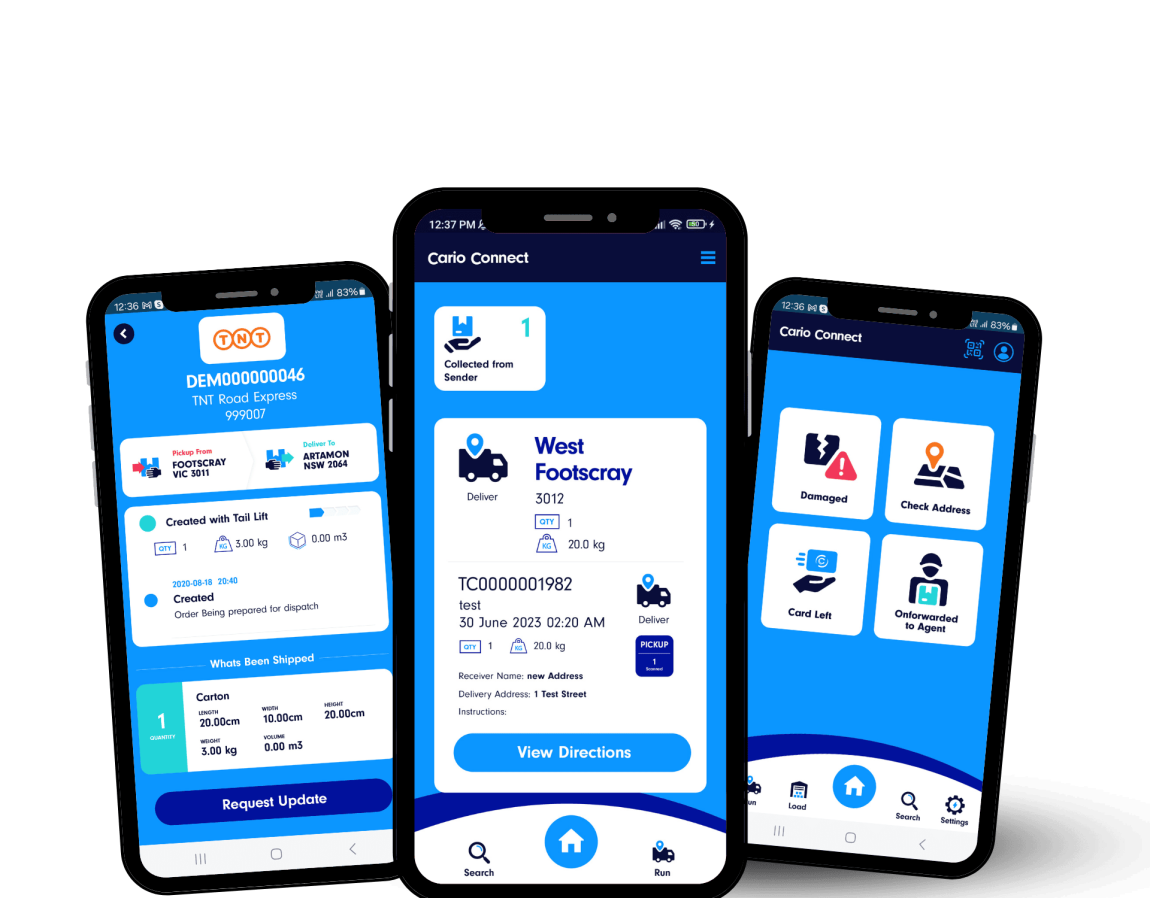
Businesses that require transportation and freight services know the importance of supply chain software systems. However, not all recognise the difference between a transportation management system (TMS) and a freight management system (FMS). While there’s a thin line between these two, understanding how each system works and what it offers is essential to ensure you employ the right one for your business. So, TMS and FMS: what’s the difference? Let’s find out below.
What Is TMS (Transportation Management System)?
A Transportation Management System is advanced software that assists companies in the effective management of their logistics. It helps businesses plan, organise, and track the physical movement of both ongoing and outgoing materials and products, ensuring timely delivery of goods.
If you still ask what a TMS is, it is a valuable part of a business’ larger supply chain management system. TMS’s help streamline and optimise the shipping process, making it easier for companies to oversee their transportation operations more efficiently.
Benefits of TMS
A Transportation Management System is beneficial to your business in many ways. The key benefits of a TMS include:
- Simplified and optimised supply chain processes across different carriers and modes
- Minimised freight expenses for both the business and customers
- Automated operations resulting in quicker and more precise billing and recording and minimizing the need for manual steps
- Improved compliance with regulations and requirements, thus reducing delays and penalties
- Enhanced visibility and security of goods in transit, allowing for real-time tracking freight on a single software
- Access to real-time data and analytics, providing you with new business insights to improve business processes and enhance service
- Better customer service, which in turn boosts customer satisfaction and experience
- Accelerated business growth as you continue to exceed customer demands for quick, timely shipments.
When You Should Use TMS
Almost every business around the world, regardless of the industry, employs a transportation management system. Although the main users of TMS’s are large companies that spend millions of dollars per year on freight logistics, more and more small businesses are realising and taking advantage of the many benefits of TMS solutions.
If you are a company that needs to ship, transport, and acquire goods regularly, including retail businesses, e-commerce businesses, manufacturers, and distributors, a transportation management system offers a more affordable solution to effective and efficient logistics supply chain management.
What Is a Freight Management System or FMS?
Another modern software that offers various benefits to many businesses and organisations is a Freight Management System. Freight management refers to the process of delivering your goods to the right customers. To ensure a seamless and efficient way of doing this, one can employ a freight management logistics system.
While you can manage business freight by yourself or a team, using a FMS can simplify freight operations, optimise shipping processes, and automate all shipment decisions. Australian FMS such as Cario is a comprehensive platform that transforms freight system complexity into efficiency and transparency – using Australian freight carriers.
Key Benefits of TMS and FMS
Due to the many freight management challenges, the importance of having an efficient logistics system is something a business should not be overlooked. One way to develop a more effective logistics system is the use of freight management software.
Discover below the main benefits of FMS.
- Automated freight decisions, including carrier comparison, carrier selection, and cost insights and analytics. FMS also allows you to optimise carrier selection based on business profiles and requirements, such as lowest cost or fastest delivery timeframe.
- Reduced manual tasks, saving you time and money in the long run
- Tracking of all shipments on one single platform, allowing you and customers to monitor freights and deliveries in real-time
- Better inventory and warehouse efficiency
- Improved customer service, resulting in greater customer satisfaction and experience
- Promotes business expansion and growth as a result of better customer experience
Who Should Use TMS vs. FMS?
Freight management logistics take advantage of modern technology to help businesses simplify their shipment processes. If you are a business serving not just a single area and needing to send freight to different locations all over Australia, freight management logistics can surely enable you to do this in the most efficient and effective way.
Employing multiple carriers is already complex and poses various freight management challenges; managing them internally can be overwhelming and costly. Our software that offers the benefits of FMS optimises your freight systems and processes in one platform, helping your business move forward and achieve bigger goals.
Key Differences Between TMS and FMS
Scope of TMS and FMS: How They Function in Logistics
TMS: Transportation management is a subset of supply chain management, and TMS encompasses a larger scope than FMS. The functional components of TMS include procurement management, carrier supervision, supply chain communication, freight audit and pay, and reporting and analytics, among others.
FMS: The scope of a freight management system covers all things related to the transport of your freight—from choosing and dealing with carriers to ensuring your goods reach the right people.
Key Benefits of TMS and FMS
TMS: Due to its larger scope, TMS offers a wider range of benefits than FMS. These benefits may be in the area involving procurement from suppliers and manufacturers, warehousing, and shipping.
FMS: FMS is your best choice when it comes to efficient shipping of your goods to the intended customers as quickly as possible. What is a freight management system and its benefits are important to meet the rising demands of your customers.
Who Should Use TMS vs. FMS?
TMS: Although the functionality of TMS and FMS often overlaps, TMS is more ideal for companies that require comprehensive help with their logistics processes and operations.
FMS: A freight management system is the perfect choice for businesses that need help with managing their shipping processes involving order fulfilment and carriers.
Final Thoughts on TMS vs. FMS
As technology becomes more and more advanced, customer expectations are also continuously rising. Every business should always be searching for ways to exceed these demands and take their company to higher levels. Although there are some differences between the two, both transportation management systems and freight management systems are modern technologies that offer many benefits to businesses. A high-quality TMS or FMS can help manage relevant business operations more efficiently and take your company forward.
Want to know more about Cario? Feel free to contact us today for more information about our freight management system and how it can help your business grow.

